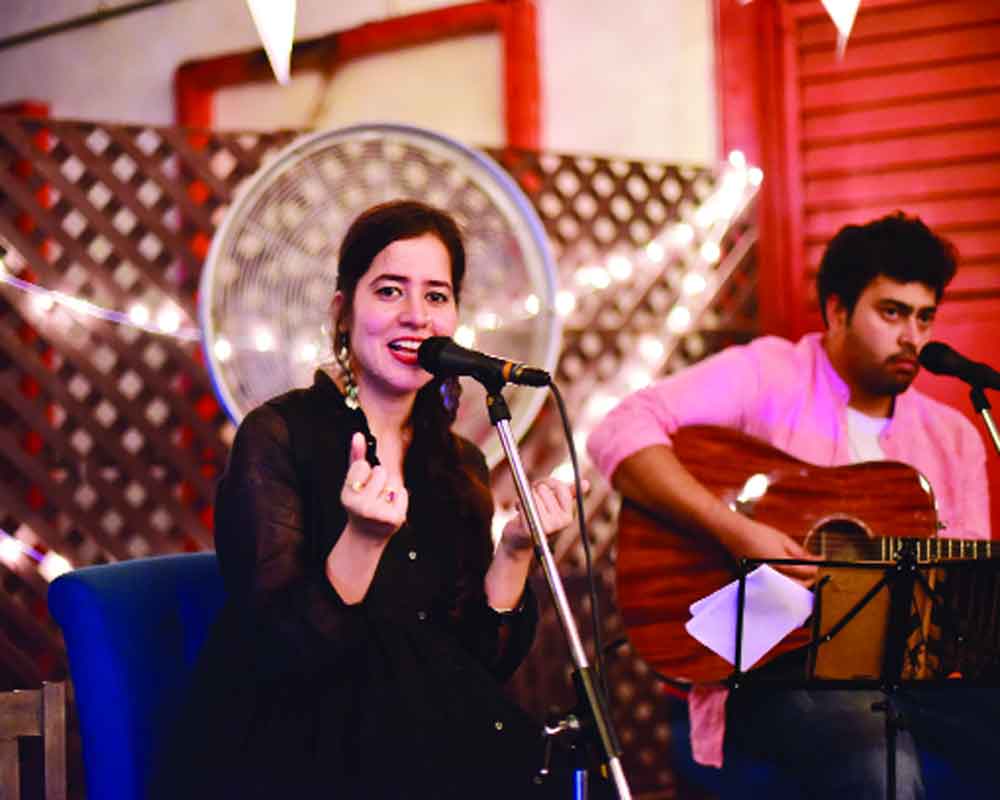Vibha Saraf, singer-songwriter from the Valley, speaks with Shalini Saksena about how she came to write a Kashmiri song for a Telugu film, among other things
- Did you always want to be a musician?
I used to be a management consultant. I had this job for five years before I turned to music and took it up professionally. But I have been singing since I was four. I did my first show when I was eight. I learnt Hindustani Classical from Sriram Bharatiya Kala Kendra for four years in Delhi. Once I quit, I took five years of professional training in mainstream music. I am trying to up the Kashmiri folk. I collaborate with other artists as well. I write my songs too.
- How did the transition from doing a job to singing happen?
I was in fourth year of my job when I decided to quit. I was getting frustrated with what I was doing. But passion alone is not enough to make you realise your potential. You need more. It was the passion that capitulated me into singing.
- Would you say you are a singer first and then a songwriter?
Songwriting was always dominant in me. I was always writing. There were melodies inside my head even as a little girl. But I didn’t know that there were words in them. I discovered it much later and gave it a name when I started writing for Nucleya.
- How did you manage to bring in Kashmiri song into a Telugu film?
I am a rooted Kashmiri and believe in carrying forward the traditions. There is a lot of negative connotations. When the music composer Joy Baruah, who was part of this film, approached me to write the lyrics, I wanted to do so in Kashmiri language since the language comes naturally to me. They loved what I had done. This song is perhaps the only Kashmiri song in any Dravidian film.
- You have come out with a few singles reinterpreting the folk music from the Valley. How did that happen?
My first single was Harmokh Bartal. It was a folk song, I gave it my interpretation so I would not give myself credit. But through various collaborations I want Kashmir to be heard. There is a story to tell not because there is a sound to songs but to tell people what the words mean. There is a lot of sufism to Kashmiri songs. People, listen to them but don’t understand the words. I want to change this.
- What was your collaboration with Nucleya about?
There is an interesting story here. I was in Hyderabad performing with Ehsaan-Loy. On the way back, I got chatting with two young singers who wanted to meet Nucleya who was also at the airport. I initiated a conversation with him and exchanged numbers. He felt that I could write songs. He sent a melody over WhatsApp, a basic melody. I added the words. He loved it. I went on to compose and write lyrics on two songs and sang one song.
- Is it tough to reinterpret folk?
It is a balance that needs to be achieved. We all need our bread and butter but we also need something for our souls. That is why I broke away from the corporate world. I am grateful to all my collaborations but some contribution needs to come from within.
- You have also sung for Bollywood. What do you enjoy more — creating your own songs or playback?
I have been fortunate that I have lent for voice in a space that I have been casted correctly. Yes, there is a sense of ownership when you do your own work as you out in so much of yourself into it.
- What made you say yes to be part of the HCL concert?
I like the way it has been hash-tagged — through your roots. I am very rooted into traditions. I have known Indranil for a very long time. Second, college is such a vibrant place and love to be part of the energy.
- What next?
There are a few projects as a singer. I am also open to writing songs as well.
























